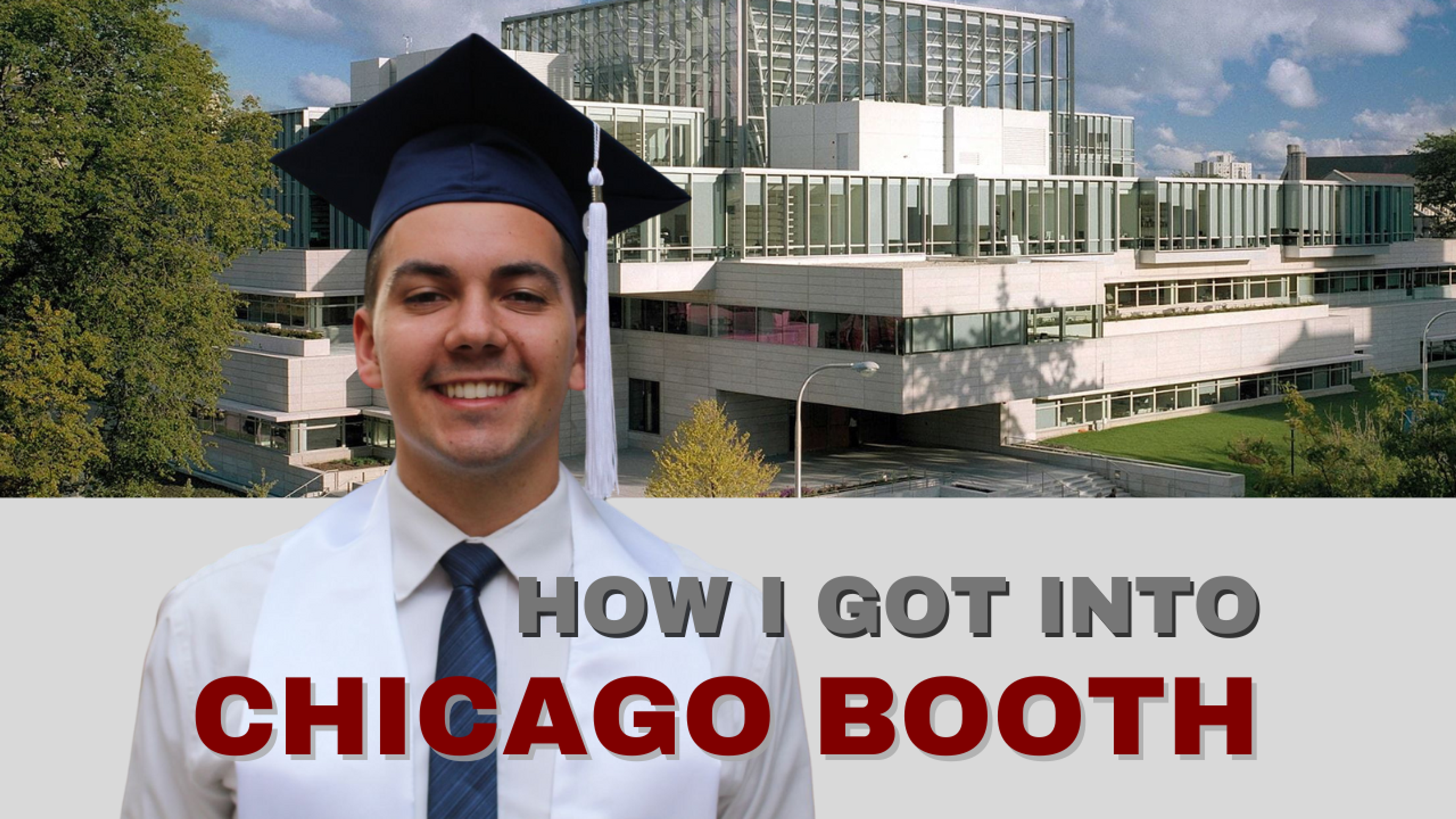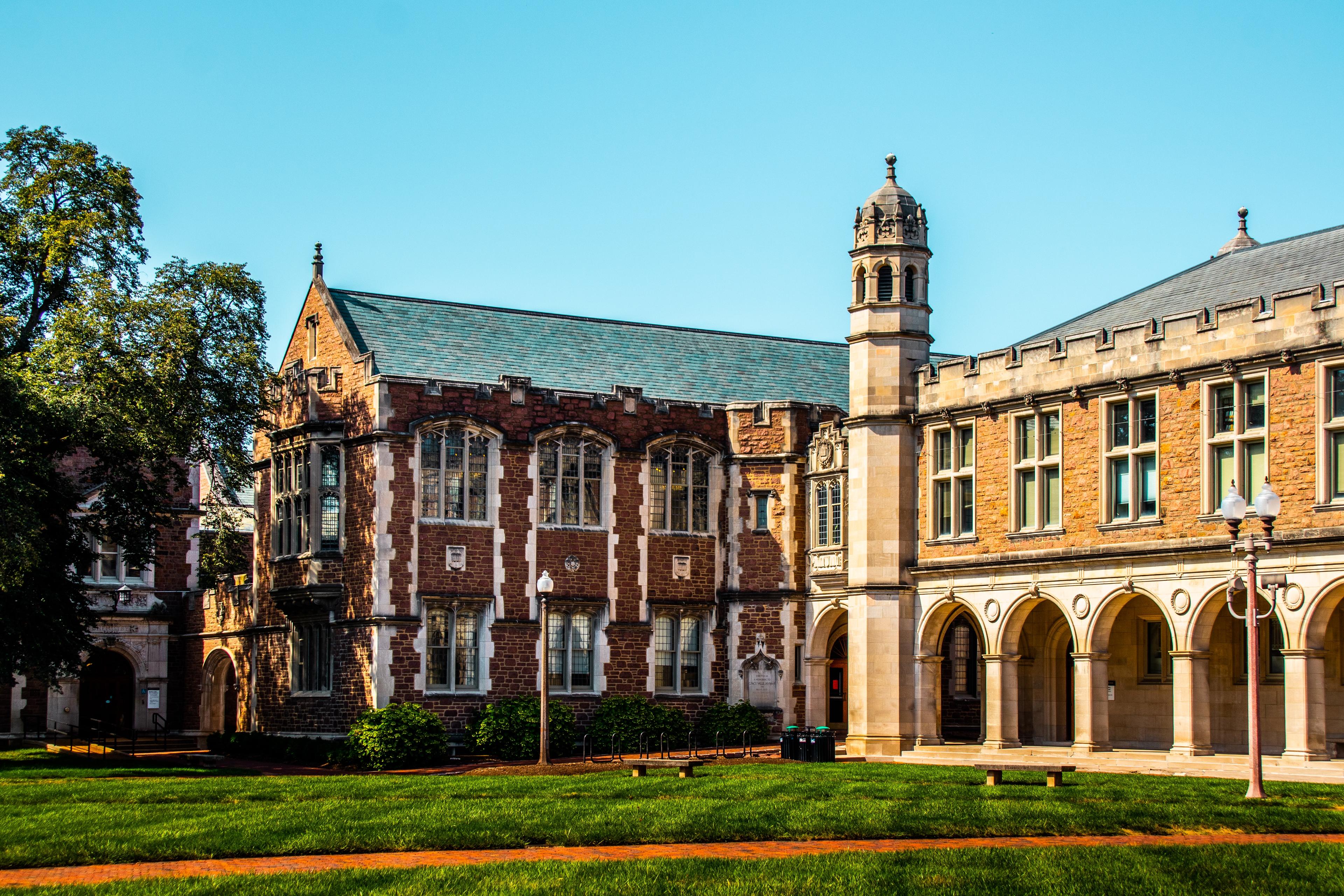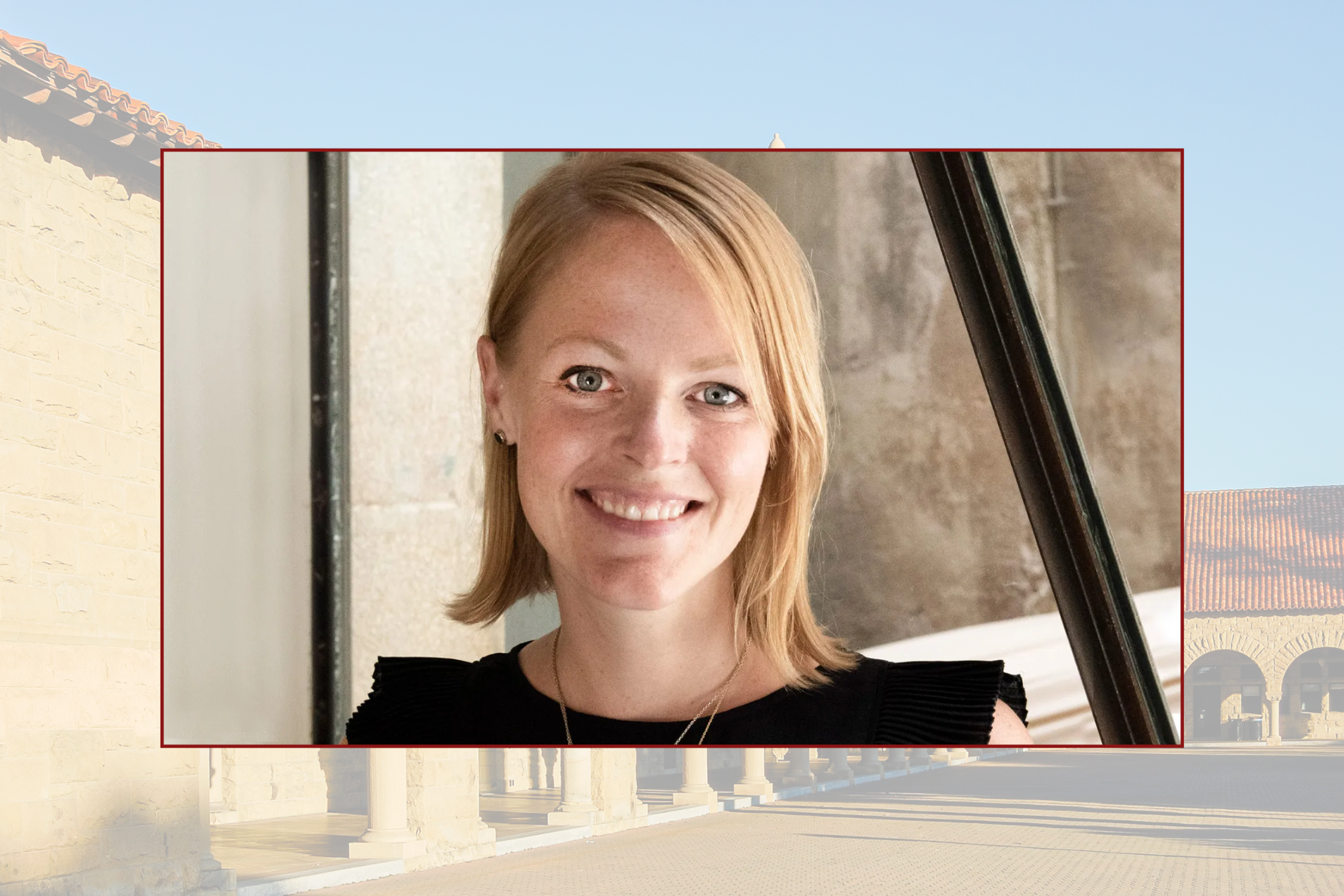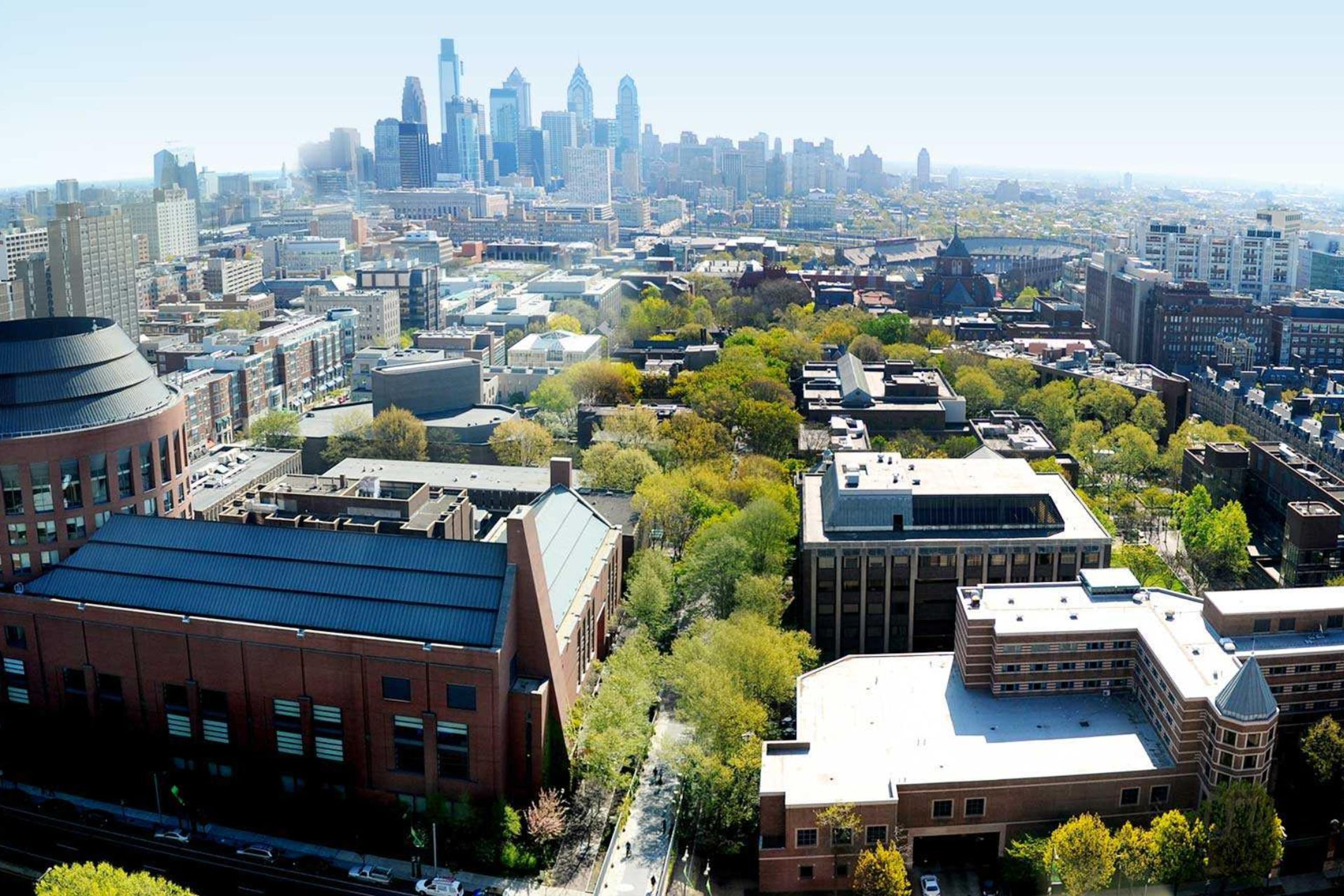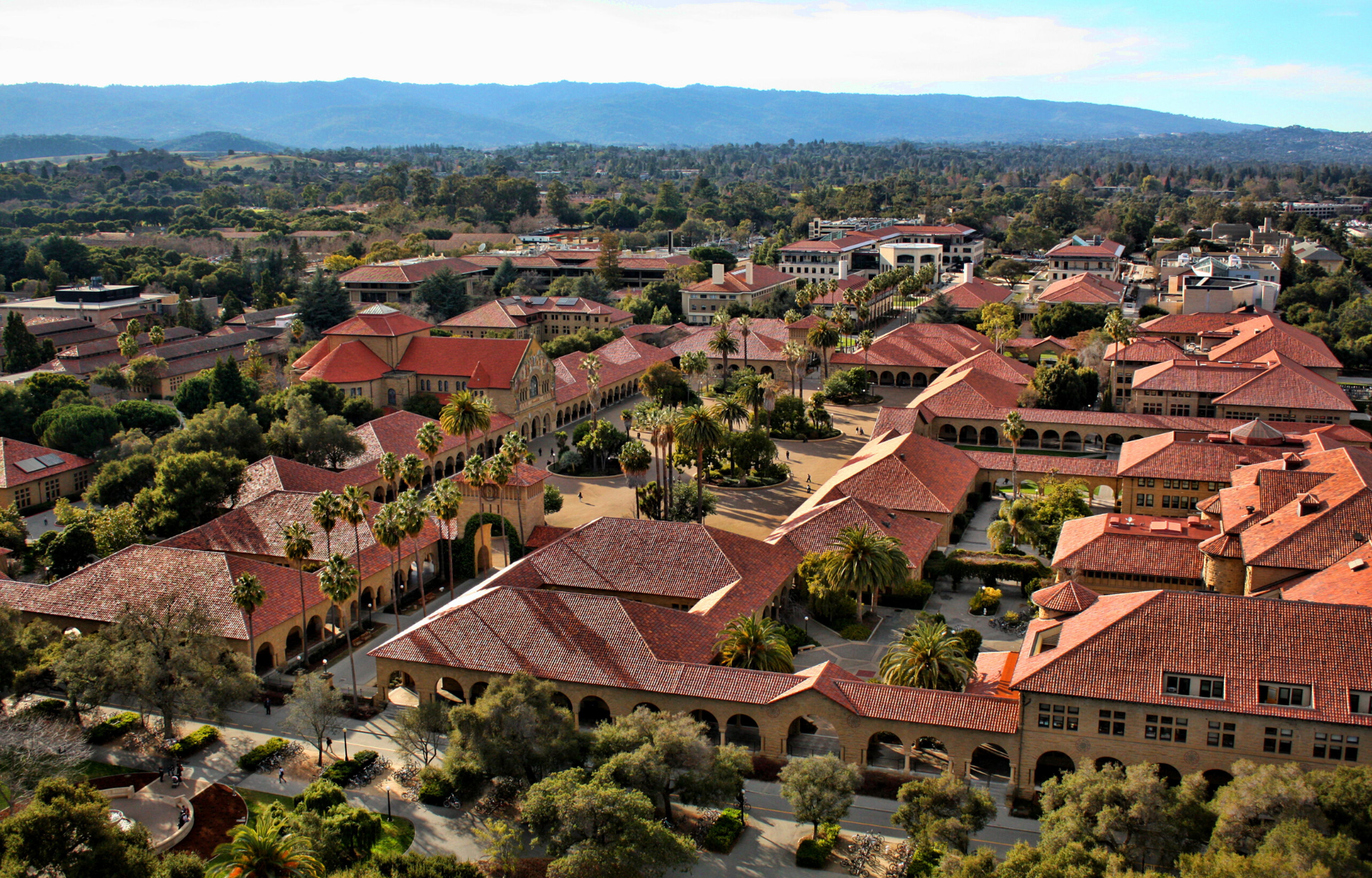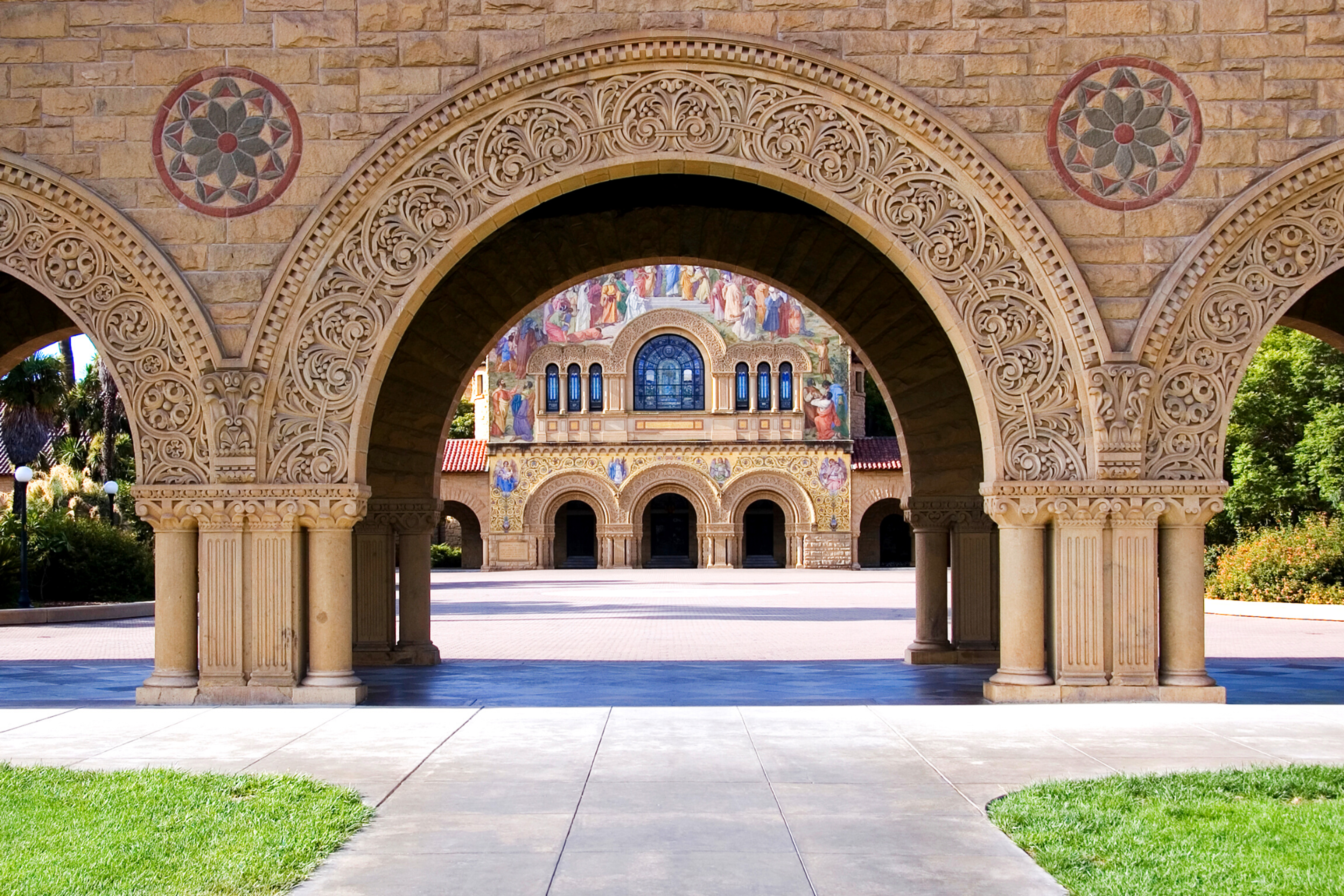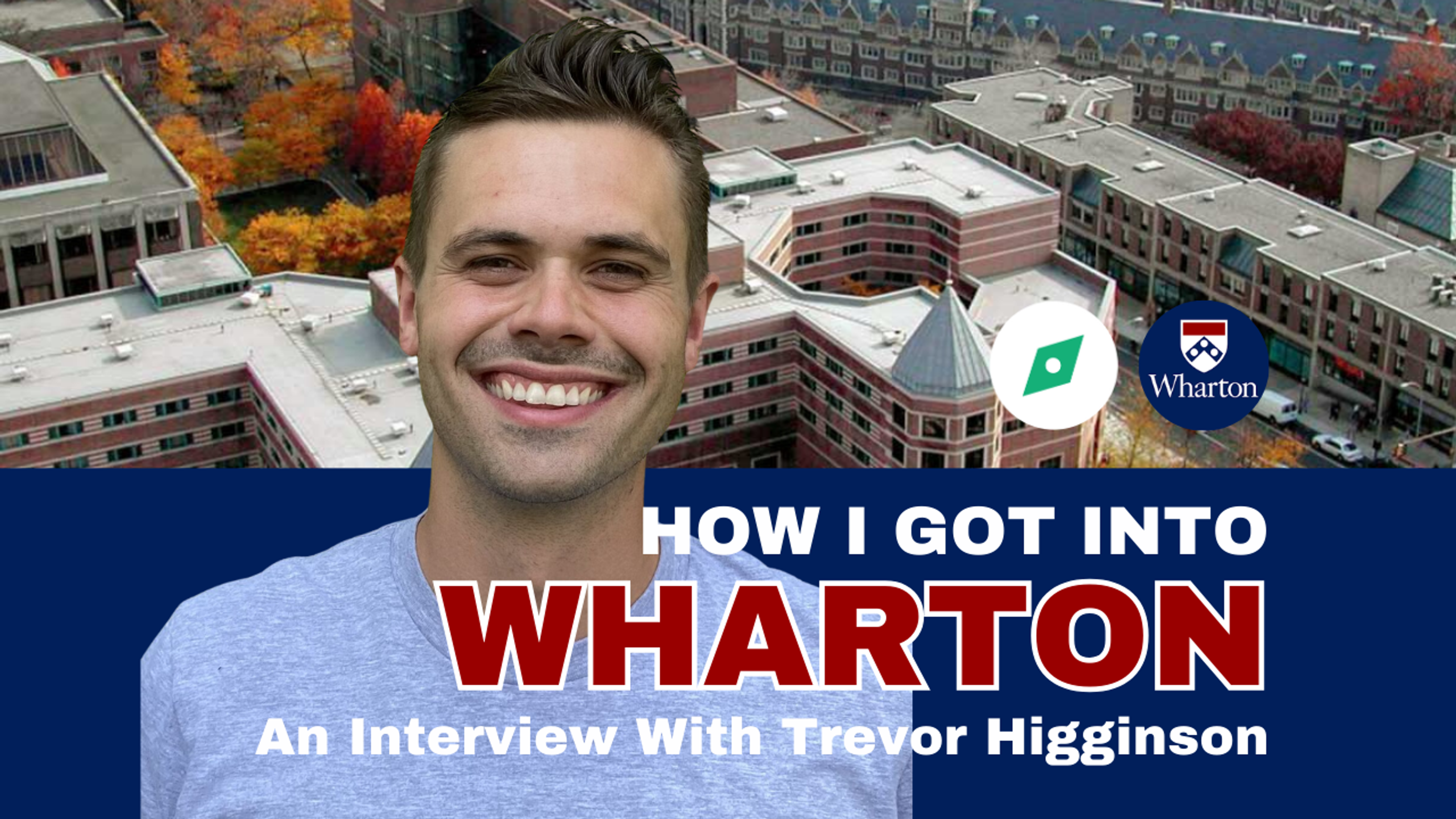
Table of Contents
Introduction: Meet Trevor
I’m Trevor Higginson, originally from Salt Lake City, Utah. I studied finance at the University of Utah and started my career in finance at Ernst & Young. After that, I transitioned to investment banking at a Japanese bank called Mizuho and then moved into secondary private equity investing at Lexington. More recently, I joined a tech startup in Salt Lake City called Aumni, which served the VC space by helping monitor investments and manage legal and economic terms. Last year, Aumni was acquired by J.P. Morgan, and I ended up there as a PM before deciding to pursue my MBA at Wharton.
The application process was grueling and intense, but with the massive help of the Leland community, particularly my coach Chas, along with support from friends and family, I was able to get into Wharton after applying to Harvard, Stanford, and Wharton!
See other admit stories:
- How I Got Into Chicago Booth Scholars (Deferred MBA) – An Interview With Bruce Erickson
- How I Got Into Stanford GSB as a Deferred Applicant – An Interview with DJ Fernandez
- Defining a Narrative of Capability: To Harvard Business School and Beyond
Watch Trevor's Video
Why did you choose to pursue an MBA and why Wharton?
Many people think of an MBA only in terms of its short-term benefits, like switching industries or climbing the ranks in their current field. But I believe the value of an MBA stretches much further, impacting your career over the next 10, 20, or even 30 years. I wanted to transition from working in a startup that got acquired to a big tech company, specifically in product management. I’ve seen what it’s like to work in a startup, and now I want to experience working in a large organization. Ultimately, I also have ambitions to start my own tech company in the future.
When it came to choosing a school, I only applied to Harvard, Stanford, and Wharton. My mindset was that if I didn’t get into one of these three, I’d continue advancing in my career as a product manager without an MBA. I was drawn to Wharton because of its strong academics, robust recruiting opportunities, and vibrant social and extracurricular scene. I appreciated Wharton’s mix of lecture-style classes, team-based learning, and case studies. This blended approach worked well for me as an undergrad and was something I wanted in my MBA experience.
Read: The Wharton School MBA: Acceptance Rate, Deadlines, Cost, Requirements, & Program Overview
How did you decide what schools to apply to?
For me, it was about quality over quantity. Having gone through various roles at different companies, from consulting at EY to investment banking and private equity, I had a clearer sense of where I wanted to go. I was already in product management, and I was happy with that path. So, it made sense to only aim for the top three schools that I felt would give me the best brand, network, and future opportunities. I wasn’t desperate for an MBA; it was more about enhancing my path, not defining it.
Read: How to Choose an MBA Program: The Discerning Student's Guide
The MBA Application Process
Did you take the GMAT or GRE? How did you decide?
I initially considered taking the GMAT right after undergrad, which is pretty common for people with finance backgrounds. However, I was overwhelmed and decided to wait. When I did start the test prep process, I chose the GRE over the GMAT. This decision came down to my strengths. I realized quickly that the GMAT’s focus on integrated reasoning and certain quant sections didn’t play to my strengths, whereas the GRE had a stronger emphasis on verbal skills and vocabulary, which I was more comfortable with.
I highly recommend taking practice tests for both the GMAT and GRE to see which one aligns better with your strengths. There’s no reason to choose the GMAT just because it’s the traditional route for business school. Play to your strengths and pick the test that suits you best.
Read: GMAT vs. GRE for an MBA—Which Should You Take (and How to Ace Both)
How did you tackle the Wharton essays?
First, I spent a lot of time getting to know Wharton because it’s very student-driven, with many clubs and other initiatives led by students. I looked at Wharton’s website to understand the clubs, courses, and other opportunities they offered. I also spoke to alumni and current students to understand the culture and how it aligned with my goals. This research helped me craft essays that were specific to my background and aspirations, showing how Wharton could bridge the gap between where I am and where I want to be.
Read: Wharton MBA Application Essays: Prompts & Expert Tips
How did you navigate the letters of recommendation?
To decide on my recommenders, I worked with my coach and created a short list of people from my last two jobs who I had worked closely with and who understood my abilities. I chose two recommenders from different employers to provide varied perspectives. With the help of my coach, Chas, I prepared a prompt document for my recommenders, outlining key attributes and anecdotes they could highlight. This made the process easier for them and ensured that their letters complemented my application narrative.
Read: MBA Recommender Questions and Criteria for the Top 10 Business Schools and How to Get the Perfect MBA Letter of Recommendation—With Examples

MBA Recommender Prep Doc
Template and example prep doc to help you guide your recommenders
The Wharton TBD Interview
Wharton’s Team-Based Discussion (TBD) interview is quite different from other MBA interviews. You’re grouped with other applicants to discuss a prompt, and the admissions team observes how you interact. To prepare, I participated in a mock TBD through Leland, which was invaluable. We received detailed feedback on how to handle different roles, like being a timekeeper or ensuring everyone had a chance to speak. Wharton values collaboration, so they want to see you work well in a team, not just dominate the conversation.
Make sure to sign up for Leland to stay in the loop for future mock Wharton TBDs and lots of free events.
Read: Wharton MBA Interview Guide: The Team-Based Discussion (TBD)
Wharton Application: Challenges & Tips
What were the biggest challenges you faced during the application process?
Every part of the process was challenging in its own way. The GRE preparation was grueling, and writing essays that effectively conveyed my story and motivations was tough. Having a coach and a support system made a huge difference. The introspection required to write compelling essays that were true to me and highlighted my unique qualities took a lot of effort and multiple iterations.
What is your top piece of advice for all future MBA applicants, and Wharton applicants more specifically?
The best advice I can give is to start early and give yourself enough time to go deep into the process. Be intentional about why you want an MBA and be prepared to articulate that clearly. A great coach is invaluable—they provide guidance, feedback, and support that can make a real difference.
For Wharton specifically, really understand what makes the program unique. Get to know the culture, the student experience, and how you can contribute. Wharton values a collaborative community, so make sure that comes across in your application.
Read:
- Wharton MBA Tuition & Fees Breakdown
- The Top 25 MBA Programs—Acceptance Rates, Tuition, and More
- The MBA Application Timeline—With Chart
- The Ultimate MBA Application Guide
- How to Craft the Ultimate MBA Resume—With Examples
- Top 25 Business Schools' Acceptance Rates & Class Profiles
FAQs
What percentage of Wharton applicants get interviews?
- Based on estimated acceptance rate at Wharton (more or less 20%), 2 to 3 applicants in each group should receive an offer (the school interviews roughly 40% of its MBA applicants), and groups that work well as a team can expect to be on the higher-end of that range.
How much does the Wharton interview matter?
- Wharton interviews approximately 40% of applicants, and about 1-in-3 ultimately receives an offer of admission. It's worth noting that no candidate gets in without an interview. They are a crucial component of how the admissions committee gets a complete picture of you as an applicant.
What does Wharton look for in candidates?
- Wharton values strong academic performance, particularly in challenging and relevant courses. Your GMAT or GRE scores, GPA, and academic achievements will be closely scrutinized. Additionally, showcasing your intellectual curiosity and how you've applied your knowledge in real-world scenarios can be beneficial.
What is Wharton's acceptance rate?
- The acceptance rate for Wharton is 24.8% It is important to consider the acceptance rate in the context of the student profile of those who are admitted. For example the average GMAT score is 732.
How smart do you have to be to get into Wharton?
- The average GMAT score for Wharton MBA admitted applicants is 728. Wharton does not have a minimum GMAT score; however, if you want to be a competitive applicant, aim for a score of 728 or higher.


